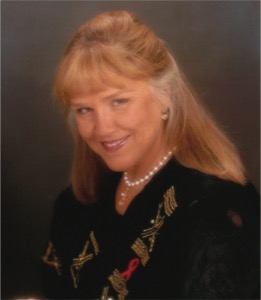
Christian singer Marsha Stevens-Pino shared her inspiring story Sunday about how she got over fundamentalists who ripped out pages from hymnals of a song she wrote after they learned she is a lesbian.
At age 16, Stevens wrote the song “For Those Tears I Died” when she performed with the Children of the Day group in the 1970s. Some refer to her song’s title as “Come to the Water.”
Stevens-Pino gave a musical sermon at the Metropolitan Community Church in San Diego Aug. 27 and talked about her music label, which is Born Again Lesbian Musician, or BALM for short.
Christian Century Magazine described her in 1999 as “conservative Christianity’s worst nightmare: a Jesus-loving, Bible-believing, God-fearing lesbian Christian.”
Stevens-Pino said Baptists often tore out the pages for her song and mailed them to her all ripped up. In so doing, they had to rip out the hymn on the other side as well, which often involved a classic traditional hymn.
She said she found her song on the back page of “A Mighty Fortress Is Our God,” written by Martin Luther, a priest who nailed 95 theses at a Catholic Church in Wittenburg, Germany in 1517 – 500 years ago – which helped spark the Protestant Reformation.
“I’m in pretty good company,” she said.
Her song also appeared on the back pages of hymns written by Charles Wesley, who helped start the Methodist Church in the 1700s. Also cut out of hymnals were songs written by Bill Gaither, Ralph Carmichael and Fanny Crosby because Stevens’ song was on the other side.
“It was kind of fun to see who they were willing to sacrifice to get rid of me,” said Stevens-Pino in an online interview.
“I always answer my hate mail,” said Stevens-Pino to MCC. “I still get a lot of it.”
She said no one is excluded from God’s love and she repeats that point, often to other narrow minded Christians who want to reject her because of her sexuality. She urges people to “look past the labels.”
In 1999, three members of Children of the Day were invited to sing at a church without Stevens. Those three singers refused the invitation to sing without her.
A lot of her ministry today is with the LGBT community. “After all these years, the message has never changed,” she said. Her first solo album was in 1987 and she also wrote “Free to Be.”
Stevens-Pino and her wife live in Nashville. She wrote a book For Those Tears I Died, in 2016 which describes her life’s story. It is available online and her ministry Web site is BalmMinistries.net.
In her book, she recounts how she was stunned to get a phone call from Pat Boone in the 1970s after she granted him permission to sing “For Those Tears I Died.”
“The first time I saw her minister, it was to an audience of tired and weary people who knew too well the rejection of much of the church,” wrote Peggy Campolo, in the forward of her book. “As Marsha sang and talked to them, that audience came alive.”











